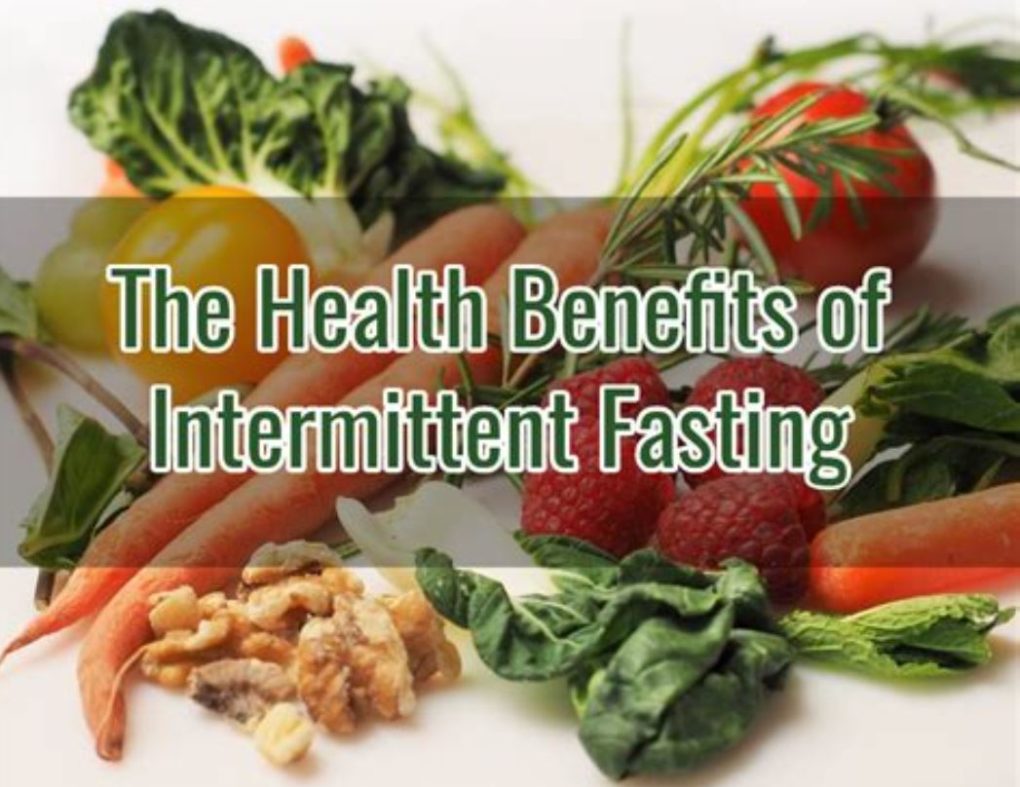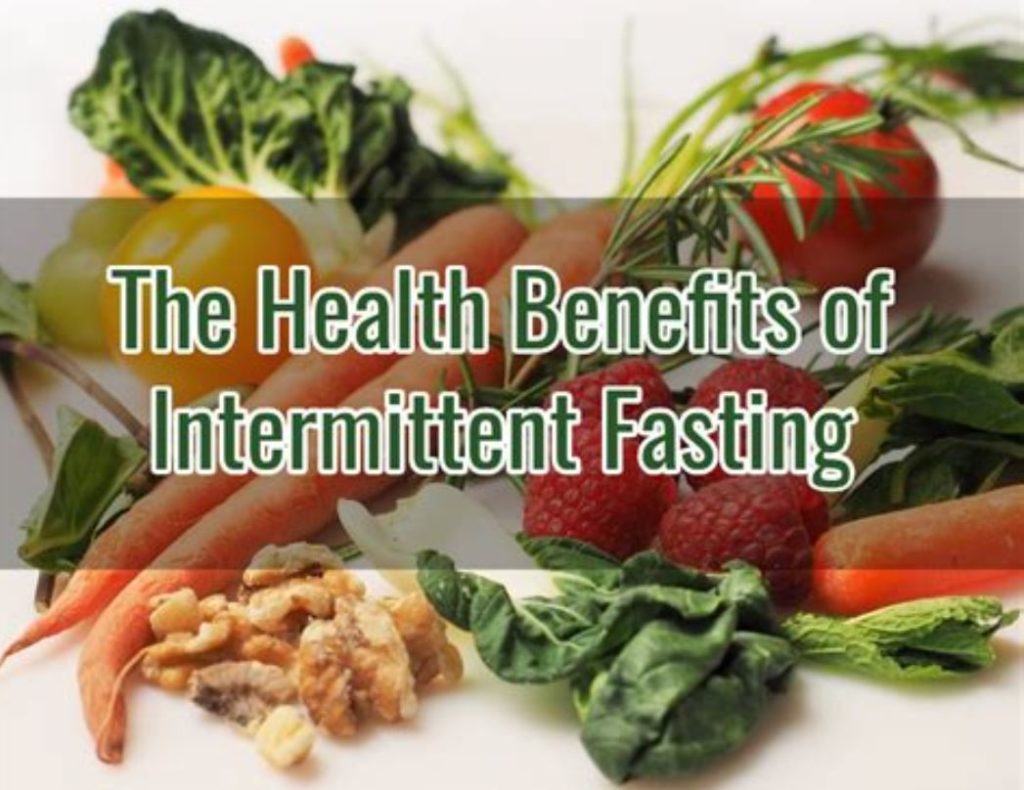Intermittent Fasting Benefits
Intermittent fasting can be extremely helpful, healing for the digestive system and promoting great health. It has been proven for many years how beneficial fasting can be for the body. Intermittent fasting is a powerful way to stimulate your immune system so that harmful bacteria can be dealt with in the digestive tract. If you are constantly eating or eating throughout the course of the day, your body is always in a state of digesting food. Therefore, it has to use resources that are directed towards digestion. However, if you eat during an 6- to 8-hour window of time, and fast for 16 to 18 hours, your body would have more of a chance of doing other functions rather than focusing so much on digestion. This gives your body the ability to break down weakened and damaged components of cells (autophagy) and recycle them for energy. This stimulates the production of new and more efficient cells.
In animal models, reducing overall caloric intake, has indicated that it can increase lifespan by as much as 30%. Intermittent fasting can also improve glucose regulation, thereby reducing markers of inflammation and increasing the production of ketones which have wonderful potential for slowing the progression of disease and increasing memory and brain function.
Widget not in any sidebars
Fasting can also be seen as a way to really be present to how driven you are by the food that you do consume or the need to have food in general. We learn discipline and self-control by choosing to not eat food for longer periods of time and this can turn into a spiritual practice, which can be very beneficial for most people.
In one study, a group of mice was given access to high fat food and the other normal chow (much lower fat). This study measured the effect of each of these diets when the mice were able to eat anytime of day and the other was under time restriction (like intermittent fasting). They fed them both diets and measured rhythm and weight in both group under condition where they were free to eat at any time and under restricted time. When the eating window was restricted under both diets, the restriction appeared to protect them from heart disease, diabetes, obesity and liver damage.
Furthermore, when mice with these health issues switched to a time-restricted diet like the other group, they began to heal from these things eating BOTH of the diets. This study showed that even when not eating optimal food, when time restriction was involved, healing occurred. What this means is that you can have a poor diet, but if you intermittent fast, the restriction can not only help you to heal, but is protective in nature. This is not a justification to go out and eat poorly but it may shed light on how our food consumption to controlled periods of time produces better health and improved digestion.
Another study showed a similar outcome with men who were prediabetic and were told to eat all meals between 8am and 3pm. Their insulin sensitivity improved and their blood pressure dropped on average by 10 points.
This study showed how dietary restriction prolongs lifespan as well. But, it not only prolongs life, health is improved and also the appearance of aging markers get delayed. So your health improves and you don’t age nearly as fast when you restrict your diet to a window of hours during the day. Dietary restriction also prevents metabolic syndrome, which is a risk factor for other conditions such as a stroke. Intermittent fasting also gives your liver the chance to properly break down the fat that is consumed in the diet. Calorie restriction has been shown to be helpful for brain pathologies including Alzheimer’s, amyotrophic lateral sclerosis (ALS), stroke, epilepsy and Parkinson’s disease.
When is the optimal time to intermittent fast?
In Chinese medicine, there is a well-known saying that says, “Eat breakfast like a king, lunch like a merchant and dinner like a pauper.” This means that the heaviest meal of the day should be breakfast, moderate meal for lunch and a very light meal for dinner. Digestive capacity, according to Chinese medicine is the absolute most powerful between 7 and 11am. Digestive capacity is the absolute weakest between 7 and 11pm. This makes logical sense, since at night your body is preparing for rebuilding and repairing during sleep, rather than having to digest food.
Many people break their fast every day at around 12pm or 1pm and eat between 1 and 7pm. While this is not optimal with regards to the natural rhythms of the body, eating during this window of time is still a very powerful health practice. It also serves our social life better with dinner being a family meal or time to be with friends.
When considering weight loss and managing weight, another study showed that when overweight and obese women, who were put on a diet regimen and consumed most of their calories at breakfast, lost 2.5 times more weight than those who had a smaller breakfast and ate most of their calories at dinner. Again, this falls completely in line with Chinese medicine. You can eat the same amount of calories throughout the day, but if you consume your calories in the early part of the day, you are going to digest better and lose weight more easily. Until the invention of electricity, many places were dark starting at around 6pm every day. People most likely would have eaten their meals when there was still light out.
To summarize, intermittent fasting can help you live longer, lose weight, help regulate your blood sugar and potentially lower your risk for diabetes, fight inflammation, and reduce cardiovascular risks. It may also be helpful in regulating blood sugar levels, increasing insulin sensitivity, and lowering cholesterol and triglyceride levels. To get the most out of this, it is suggested that you fast for at least 16 to 18 hours on a daily basis. And you consume food only during a 6- to 8-hour window every day. This may get you into a very mild ketogenic state. Ketones or ketone bodies are produced by the liver from fatty acids during periods of low food intake or higher fat intake, specifically with restriction of carbohydrates. Ketones are used for fuel in place of glucose when it is not available.
Many people love intermittent fasting and, when done properly, have loved how they feel when they are practicing this form of dietary practice. Having the discipline to eat only during a short window of time is a great practice to have. Give it a try and see how it goes.
Every health problem has its root in the health of your gut. If you want to massively increase your energy, sleep better, raise your libido, lose weight and eliminate your pain and inflammation, I created an online course called Total Gut Transformation. This course is full of lessons online, videos, a free breakfast guide, a detoxification program and so much more. In as little as 30 days, you can totally heal your digestion. Click HERE for more information on Total Gut Transformation.
You can learn more from Dr. Scott Graves at his website HERE.
Subscribe for natural health news to your inbox. Follow Natural Blaze on YouTube, Twitter and Facebook.




